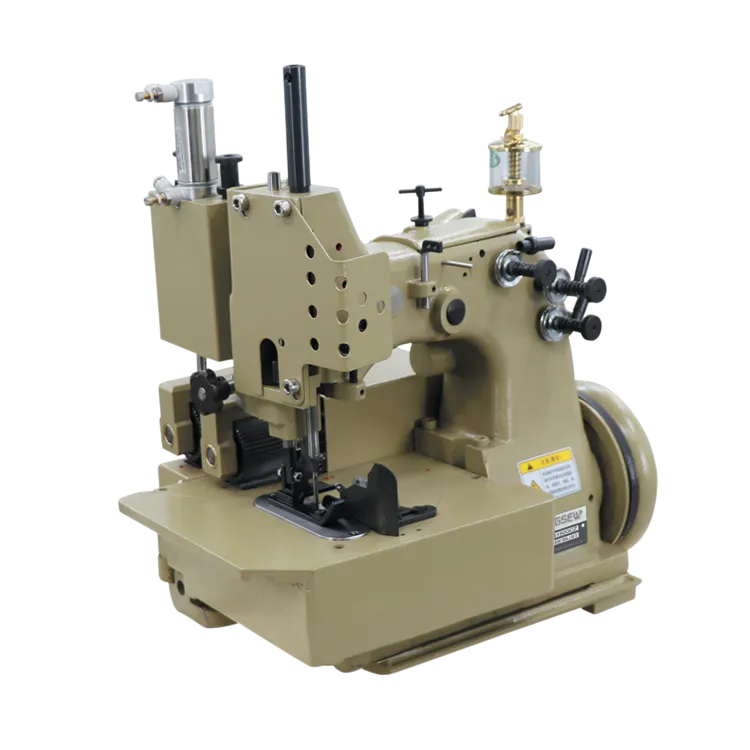Automated Sewing Machines Enhancing Factory Efficiency and Production Speed
The Rise of Automatic Sewing Machines for Factories
In the fast-paced world of manufacturing, efficiency and precision are paramount. Among the myriad of advancements that have transformed industrial operations, automatic sewing machines stand out as a groundbreaking innovation. These machines not only streamline production processes but also enhance the quality of the finished products, making them indispensable tools for modern factories.
Automatic sewing machines are designed to perform a variety of tasks with minimal human intervention. Unlike traditional sewing machines, which require operators to manually guide fabric and control stitching, automatic machines can handle multiple functions simultaneously. This includes fabric cutting, stitching, and even quality control. The automation of these processes reduces labor costs and minimizes human error, leading to a more streamlined production line.
The Rise of Automatic Sewing Machines for Factories
Moreover, automatic sewing machines are equipped with advanced technology that ensures precision. Many of these machines utilize computerized systems that allow for intricate designs and patterns to be reproduced with flawless accuracy. This capability is essential for industries like fashion and textile manufacturing, where detail and quality can dictate the success of a product. The ability to consistently produce high-quality items bolsters brand reputation and customer satisfaction, contributing to long-term business success.
automatic sewing machine for factory

In addition to speed and accuracy, automatic sewing machines also offer flexibility. Modern machines can be programmed to switch between different tasks with ease, allowing factories to produce varied product lines without significant downtime. This adaptability is crucial in an era where consumer tastes can change rapidly, and manufacturers must be able to pivot quickly to meet new demands. The ability to produce small batches of diverse items can also enhance a factory's appeal to retailers looking for unique offerings.
Another notable benefit of automatic sewing machines is the reduction of workplace injuries. Traditional sewing involves repetitive motions that can lead to strain and injuries over time. By automating the sewing process, factories can create safer working environments for their employees. This not only contributes to employee well-being but also reduces costs associated with workplace injuries, such as medical claims and lost productivity.
However, the adoption of automatic sewing machines in factories is not without challenges. The initial investment costs can be significant, which may deter smaller manufacturers from making the leap to automation. Additionally, there is a learning curve associated with operating these advanced machines, necessitating training for existing staff or the hiring of new employees with specialized skills. Nevertheless, the long-term benefits often outweigh these initial hurdles.
In conclusion, the integration of automatic sewing machines into factory operations represents a significant advancement in manufacturing technology. By enhancing efficiency, improving quality, and ensuring workplace safety, these machines are redefining production standards. As the industry continues to evolve, it is evident that automatic sewing machines will play a pivotal role in shaping the future of manufacturing, driving innovation, and meeting the ever-growing demands of consumers around the world.
-
Industrial Cylinder Arm Sewing Machine: Revolutionizing Heavy-Duty SewingNewsJul.28,2025
-
Cylinder Arm Sewing Machine: Perfect for Special Sewing ApplicationsNewsJul.28,2025
-
Cylinder Bed Sewing Machine: Essential for Sewing Complex MaterialsNewsJul.28,2025
-
Heavy Duty Sewing Machine: The Essential Tool for Industrial ApplicationsNewsJul.28,2025
-
Computerized Pattern Sewing Machine: Revolutionizing Precision StitchingNewsJul.28,2025
-
Heavy Duty Industrial Sewing Machine: Power Meets PrecisionNewsJul.28,2025
-
Leather Sewing Machine: The Industrial Standard for Tough MaterialsNewsJul.18,2025





























